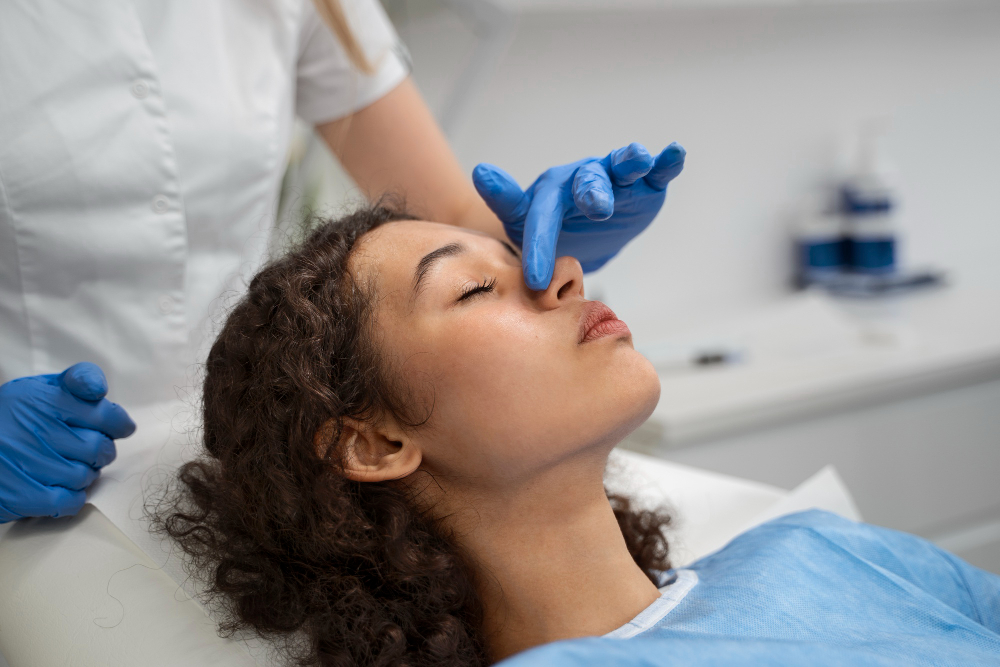Strategies to Combat Uneven Skin Tone and Treat Hyperpigmentation

An uneven skin tone and skin pigmentation can occur due to various causes, for instance, sun exposure, hormonal changes, acne scars, and aging. But the good news is, it can be prevented and treated.
Use Sunscreen
Exposure to the sun is one of the primary causes of hyperpigmentation. Protecting your skin from the sun's harmful UV rays can prevent damage to the skin and minimize existing pigmentation. Use a broad-spectrum sunscreen with an SPF of 30 or higher daily, even on cloudy days.
Topical Creams and Ointments
Look for creams that contain certain ingredients like the following:
- Hydroquinone - Skin-lightening agent that inhibits the production of melanin.
- Vitamin C - Antioxidant that brightens the skin and helps fade dark spots.
- Retinoids - Promote cell turnover and help fade hyperpigmentation.
- Niacinamide - Helps reduce inflammation and helps fade dark spots.
- Alpha Hydroxy Acids (AHAs) and Beta Hydroxy Acids (BHAs) - Remove dead skin cells and promote skin renewal, leading to a more even complexion.
Also Read: How Lifestyle Choices Affect Skin Pigmentation
Chemical Peel Treatments
This professional treatment option helps improve uneven skin tone and hyperpigmentation. The exfoliating acids peel off the outer dermis to reveal smoother and more even-toned skin underneath.
Laser Therapy
Laser treatments, such as intense pulsed light (IPL) therapy and fractional laser resurfacing, deliver light energy or laser beams to the skin, breaking down excess pigment and stimulating collagen production.
Microneedling
Microneedling stimulates the skin's natural healing process, leading to increased collagen production and a more even skin tone. Microneedling can be combined with topical serums or platelet-rich plasma (PRP) to enhance results and improve pigmentation irregularities.
Also Read: PRP or Microneedling - The Better Option for Pigmentation Removal
Professional Aesthetic Care
Professional skincare treatments, such as microdermabrasion, dermaplaning, and LED light therapy, can also help improve skin texture and tone. These treatments exfoliate the skin, stimulate circulation, and promote cell turnover, resulting in a brighter and more even complexion.
Regular Skincare Routine
Establishing a daily skincare routine that includes gentle cleansing, exfoliation, hydration, and sun protection can help maintain results and prevent further pigmentation issues.
By incorporating these strategies on how to treat hyperpigmentation into your skincare regimen, and with guidance from an aesthetic skincare professional, you can achieve a brighter, more radiant complexion.
Frequently Asked Questions
1. What causes hyperpigmentation?
Hyperpigmentation results from sun exposure, hormonal changes, acne scars, or aging, causing excess melanin production and uneven skin tone.
2. How can I prevent hyperpigmentation?
Use sunscreen (SPF 30+), limit sun exposure, and maintain a regular skincare routine.
3. What topical creams can help with hyperpigmentation?
Effective ingredients for hyperpigmentation include hydroquinone, vitamin C, retinoids, niacinamide, and alpha hydroxy acids (AHAs).
4. What professional treatments are available for hyperpigmentation?
Professional options like chemical peels, laser therapy (IPL), microneedling, and microdermabrasion exfoliate the skin and break down excess pigment.
5. What should I include in my skincare routine to combat hyperpigmentation?
A solid skincare routine should include gentle cleansing, regular exfoliation, hydration, and daily sun protection to maintain a more even complexion.
- May 03, 2024
